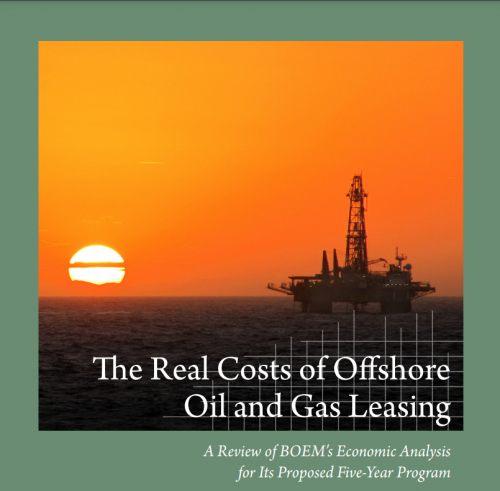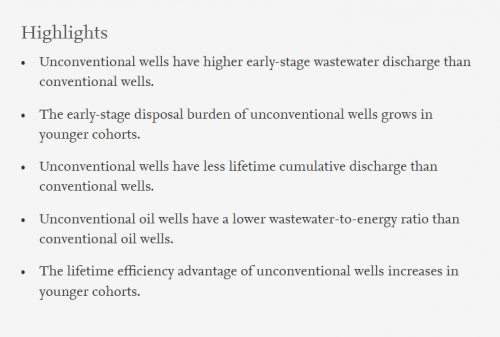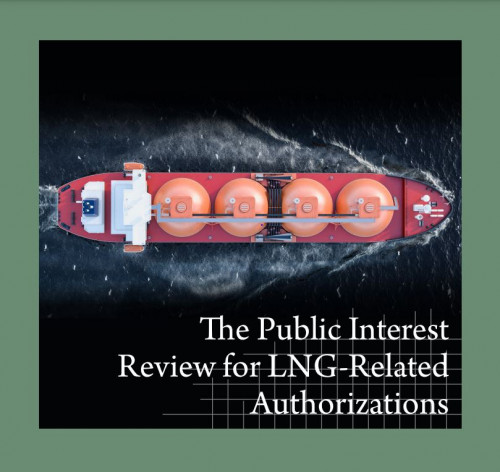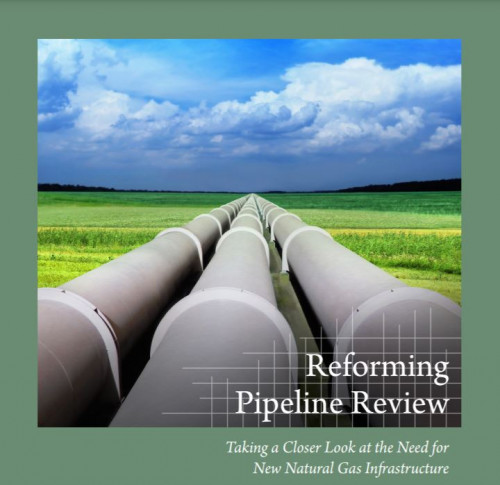-
Comments to Bureau of Ocean Energy Management on Proposed Five-Year Offshore Leasing Plan
In July, the Bureau of Ocean Energy Management (BOEM) released its proposed five-year offshore leasing plan, which contemplates scheduling anywhere from zero to eleven lease sales over the coming half-decade. As part of that proposal, BOEM conducts a cost-benefit analysis in which it finds net benefits from offshore leasing, but recognizes uncertainty and specifically calls for comment on this analysis.
In response to this call for comments, Policy Integrity submitted two original reports offering extensive feedback on BOEM’s cost-benefit analysis. As detailed in those reports, BOEM’s analysis severely understates the costs of OCS leasing—particularly the climate costs. Our reports offer original analysis and modeling finding that, properly considered, the climate costs of offshore leasing alone may exceed the total benefits from that leasing.
-

The Real Costs of Offshore Oil and Gas Leasing
A Review of BOEM’s Economic Analysis for Its Proposed Five-Year Program
In July 2022, the Bureau of Ocean Energy Management (BOEM) released its proposed Outer Continental Shelf oil and gas leasing program for 2023–2028. That plan contemplates holding up to 11 lease sales over the next five years, and conducts an economic analysis concluding that the benefits of those lease sales would exceed the costs. This report provides comprehensive feedback on BOEM’s economic analysis. As the report details, BOEM vastly understates the environmental and social costs of offshore leasing in several key ways.
-
The Public Interest Review for LNG-Related Authorizations
After a meteoric rise in production over the past decade, the United States has become the largest exporter of liquefied natural gas (LNG) in the world. Yet, the analysis behind LNG terminal and export approvals overlooks climate and environmental justice impacts, despite promises of imminent reform. Policy Integrity’s new report provides a comprehensive look at the Department of Energy’s (DOE) and the Federal Energy Regulatory Commission’s (FERC) past practice in this space and offers recommendations for improving their review of the climate and environmental justice impacts of LNG approvals.
-
Comments to DOE on Supplemental Environmental Analysis for Alaska LNG Project
After the Department of Energy published a supplemental environmental impact statement claiming that exporting liquefied natural gas from a proposed Alaska terminal would decrease greenhouse gas emissions, we submitted comments challenging the Department’s methodology and assumptions. In particular, our comment letter explains that the Department’s analysis unreasonably assumes that the Project would merely displace existing exports from Gulf Coast facilities, and thus overlooks the inevitable economic reality that the Project will increase total natural gas supply and consumption. As our comment letter explains, courts have rejected this “perfect substitution” assumption in related contexts. Moreover, our letter explains that the Department’s lifecycle analysis insufficiently considers the choice of destination countries and is inconsistent with the agency’s analysis of economic impacts.
-

Does Unconventional Energy Extraction Generate More Wastewater? A Lifetime Perspective
Published in Ecological Economics
The paper analyzes how wastewater generation patterns differ between unconventional wells and conventional wells, accounting for differences in well configurations and local geology. Using the 2008–2016 monthly production data from 50,039 wells, the authors show that unconventional wells generated more wastewater in the first 12 months of production but less cumulative discharge than conventional wells. Unconventional oil wells had a lower wastewater-to-energy ratio throughout their lifetime than their conventional counterparts, whereas no efficiency gap existed among gas wells. These findings call for targeted strategies to balance the short-term disposal burden and the long-term efficiency gains of unconventional energy extraction.
-
Comment Letters on FERC’s Proposed Policy Statements for Natural Gas Infrastructure
In February, the Federal Energy Regulatory Commission released two policy statements that acknowledged the Commission’s role in shaping the nation’s transition to a low-carbon future and called for the consideration of climate impacts in pipeline certificate proceedings. Today, the Institute for Policy Integrity filed two comment letters to these proposed policy statements.
In one of our comment letters—filed jointly with over two dozen legal scholars from institutes across the country—we rebut arguments from opponents of the policies that the Commission lacks authority to consider climate effects in its oversight of natural gas infrastructure under the Natural Gas Act.
In our other comment letter, we explain that the policy statements serve as an important step toward ensuring that upstream and downstream emissions are properly considered in line with the Commission’s statutory obligations, but provide several suggestions for improvements.
-
Comments to FERC on Regional Energy Access Expansion Project DEIS
Today we submitted comments to FERC on the draft environmental impact statement for Transcontinental Gas Pipe Line Co.'s Regional Energy Access Expansion Project. These comments offer recommendations for improving the Commission's assessment of climate and environmental justice impacts of the project, and its consideration of alternatives.
-
Comments to FERC on Iroquois Gas Certificate Order
Today we submitted comments to FERC regarding its decision to grant a certificate of public convenience and necessity to Iroquois Gas for its Enhancement by Compression Project. These comments begin by underscoring the Commission's obligation to independently review and scrutinize lifecycle greenhouse gas emission reports (or other evidence regarding net emissions associated with a project) submitted by applicants. The comments also highlight flaws in Iroquois' analysis which undermine the conclusion that the project will result in a decrease of emissions. The Commission overlooked these flaws in relying on the analysis to conclude the project would result in a net reduction, such that it need not further assess the project's climate impacts.
-
Comments to DOE on CP2 LNG’s Export Application
Policy Integrity filed comments on Venture Global CP2 LNG's application to the Department of Energy (DOE) for authorization to export liquefied natural gas (LNG) to non-free trade agreement nations. We argued that in line with relevant case law, DOE must consider the indirect greenhouse gas emissions associated with the CP2 LNG project in its National Environmental Policy Act (NEPA) review, and weigh the impacts in its Natural Gas Act Section 3 assessment. In doing so, DOE should apply reasonable assumptions to quantify indirect greenhouse gas emissions and better analyze substitution impacts from LNG exports. Furthermore, DOE should refrain from applying its recent NEPA categorical exclusion rule to the CP2 LNG project due to severe legal deficiencies with that rule. Finally, we urge DOE to work with FERC on a single NEPA review for the project because DOE and FERC's Section 3 authorizations are connected actions under NEPA.
-
Reforming Pipeline Review
Taking a Closer Look at the Need for New Natural Gas Infrastructure
The Federal Energy Regulatory Commission (FERC) uses a flawed process to evaluate the need for new, long-lasting gas infrastructure such as interstate pipelines, resulting in a certification process that fails to serve the public interest. As FERC begins to re-examine its approval process for new natural gas infrastructure, our report analyzes the Commission’s authority to consider a broader range of factors when deciding whether a proposed project is in the public interest. The report offers four key recommendations for reform.
Viewing recent projects in Natural Resources





